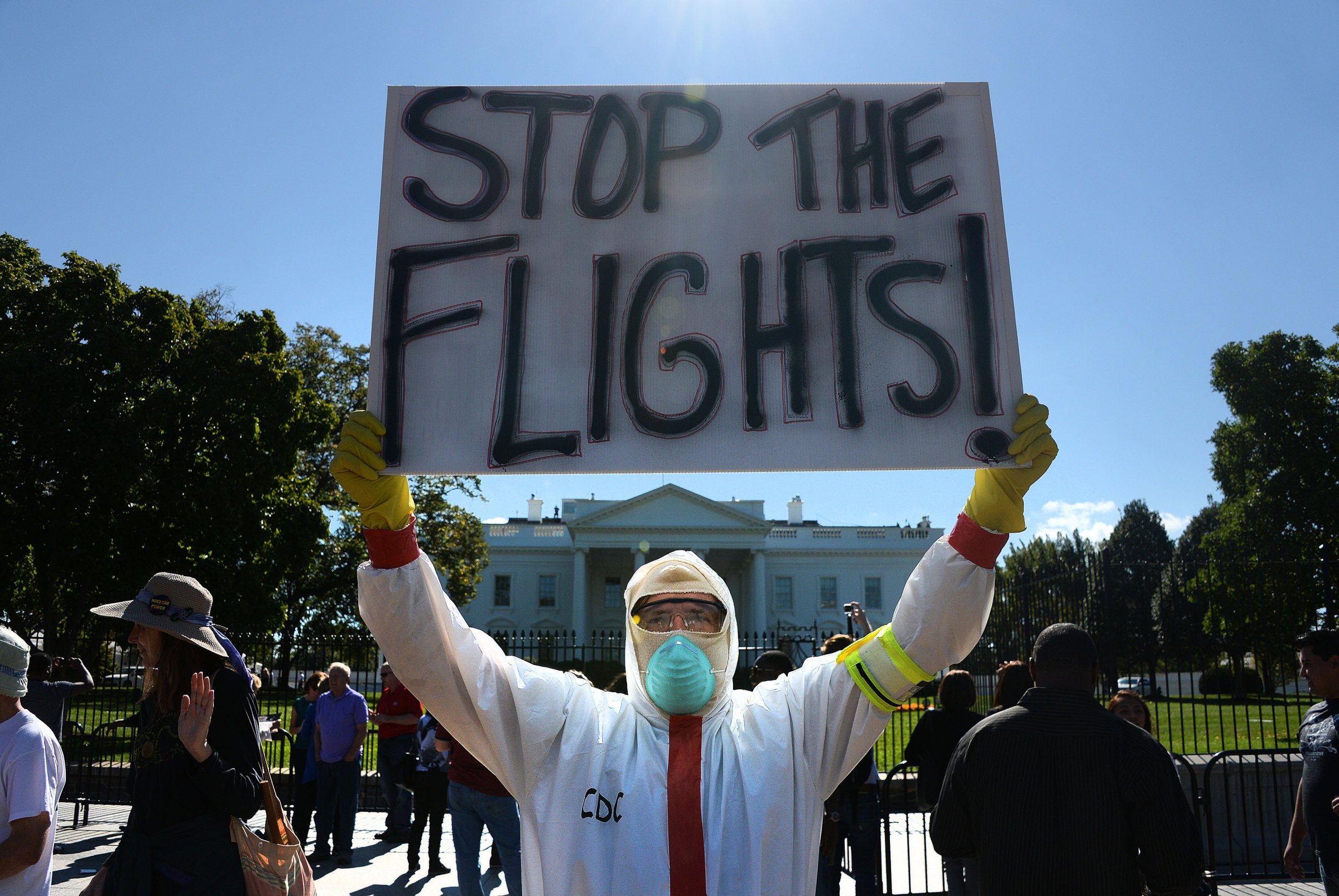
In Hazlehurst, Miss., parents pulled their children out of middle school last week after learning that the principal had recently visited southern Africa.
At Syracuse University, a Pulitzer Prize–winning photojournalist who had planned to speak about public health crises was banned from campus after working in Liberia.
An office building in Brecksville, Ohio, closed where almost 1,000 people work over fears that an employee had been exposed to Ebola.
A high school in Oregon canceled a visit from nine students from Africa — even though none of them hailed from countries containing the deadly disease.
All over the U.S., fear of contracting Ebola has prompted a collective, nationwide freak-out. Schools have emptied; businesses have temporarily shuttered; Americans who have merely traveled to Africa are being blackballed.
As the federal government works to contain the deadly disease’s spread under a newly appointed “Ebola czar,” and as others remain quarantined, the actual number of confirmed cases in the U.S. can still be counted on one hand: three. And they’ve all centered on the case of Thomas Eric Duncan, who died Oct. 8 in a Dallas hospital after traveling to Liberia; two nurses who treated him are the only other CDC-confirmed cases in the U.S.
The almost-zero probability of acquiring something like Ebola, given the virus’s very real and terrifying symptoms, often doesn’t register at a time of mass paranoia. Rationality disappears; irrational inclinations take over. It’s human nature, and we’ve been acting this way basically since we found out there were mysterious things out there that could kill us.
“There are documented cases of people misunderstanding and fearing infectious diseases going back through history,” says Andrew Noymer, an associate professor of public health at the University of California at Irvine. “Stigmatization is an old game.”
While there was widespread stigma surrounding diseases like the Black Death in Europe in the 1300s (which killed tens of millions) and more recently tuberculosis in the U.S. (patients’ family members often couldn’t get life-insurance policies, for example), our current overreaction seems more akin to collective responses in the last half of the 20th century to two other diseases: polio and HIV/AIDS.
Concern over polio in the 1950s led to widespread bans on children swimming in lakes and pools after it was discovered that they could catch the virus in the water. Thirty years later, the scare over HIV and AIDS led to many refusing to even get near those believed to have the disease. (Think of the hostile reaction from fellow players over Magic Johnson deciding to play in the 1992 NBA All-Star Game.)
Like the first cases of polio and HIV/AIDS, Ebola is something novel in the U.S. It is uncommon, unknown, its foreign origins alone often leading to fearful reactions. The fatality rate for those who do contract it is incredibly high, and the often gruesome symptoms — including bleeding from the eyes and possible bleeding from the ears, nose and rectum — provoke incredibly strong and often instinctual responses in attempts to avoid it or contain it.
“It hits all the risk-perception hot buttons,” says University of Oregon psychology professor Paul Slovic.
Humans essentially respond to risk in two ways: either through gut feeling or longer gestating, more reflective decisionmaking based on information and analysis. Before the era of Big Data, or data at all, we had to use our gut. Does that look like it’s going to kill us? Then stay away. Is that person ill? Well, probably best to avoid them.
“We didn’t have science and analysis to guide us,” Slovic says. “We just went with our gut feelings, and we survived.”
But even though we know today that things like the flu will likely kill tens of thousands of people this year, or that heart disease is the leading cause of death in the U.S. every year, we’re more likely to spend time worrying about the infinitesimal chances that we’re going to contract a disease that has only affected a handful of people, thanks in part to its frightening outcomes.
“When the consequences are perceived as dreadful, probability goes out the window,” Slovic says. “Our feelings aren’t moderated by the fact that it’s unlikely.”
Slovic compares it to the threat from terrorism, something that is also unlikely to kill us yet its consequences lead to massive amounts of government resources and calls for continued vigilance from the American people.
“Statistics are human beings with the tears dried off,” he says. “We often tend to react much less to the big picture.”
And that overreaction is often counterproductive. Gene Beresin, a Harvard Medical School psychiatry professor, says that fear is causing unnecessary reactions, oftentimes by parents and school officials, and a social rejection of those who in no way could have caught Ebola.
“It’s totally ridiculous to close these schools,” Beresin says. “It’s very difficult to catch. People need to step back, calm down and look at the actual facts, because we do have the capacity to use our rationality to prevent hysterical reactions.”
Read next: Nigeria Is Ebola-Free: Here’s What They Did Right
More Must-Reads from TIME
- Cybersecurity Experts Are Sounding the Alarm on DOGE
- Meet the 2025 Women of the Year
- The Harsh Truth About Disability Inclusion
- Why Do More Young Adults Have Cancer?
- Colman Domingo Leads With Radical Love
- How to Get Better at Doing Things Alone
- Michelle Zauner Stares Down the Darkness
Contact us at letters@time.com